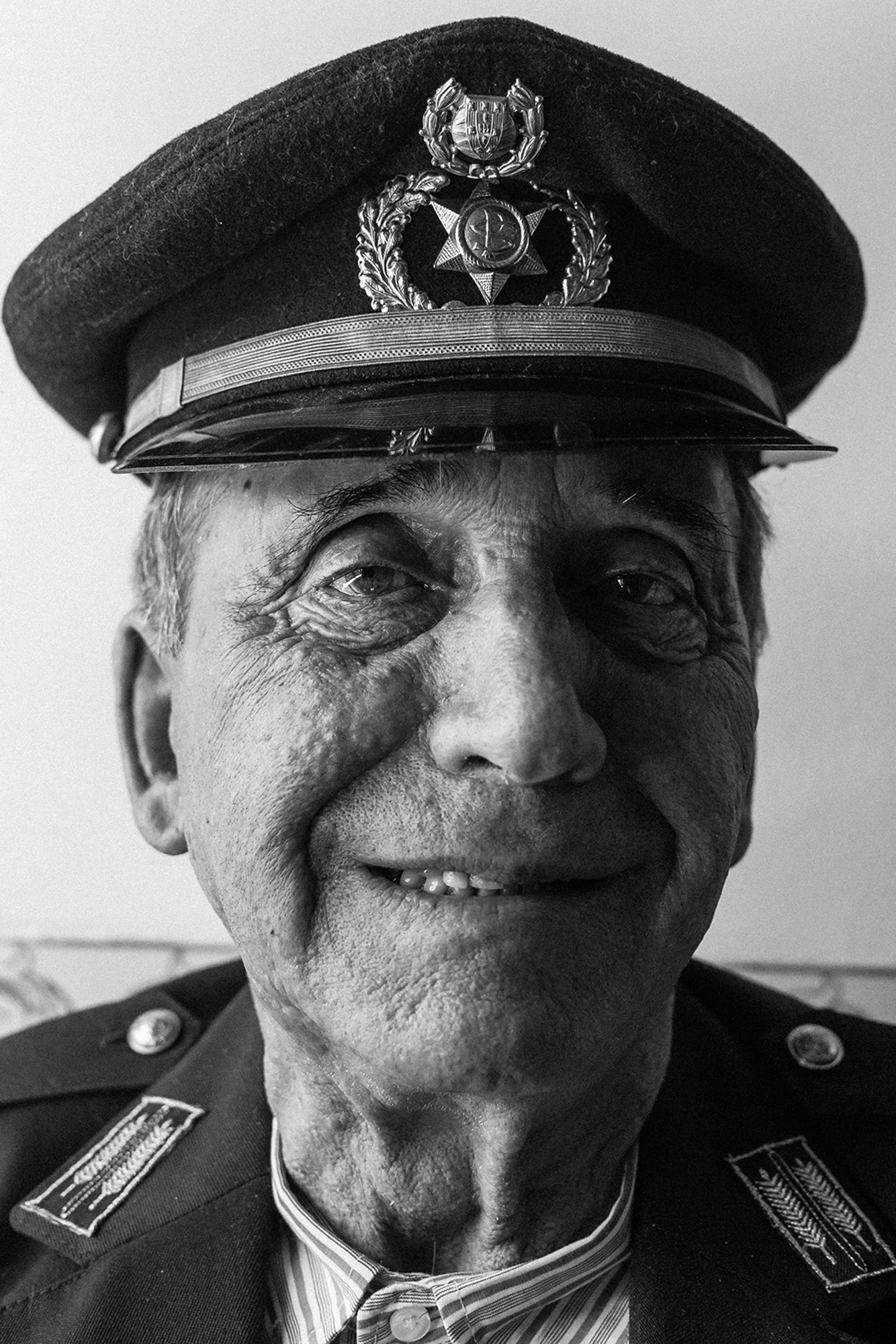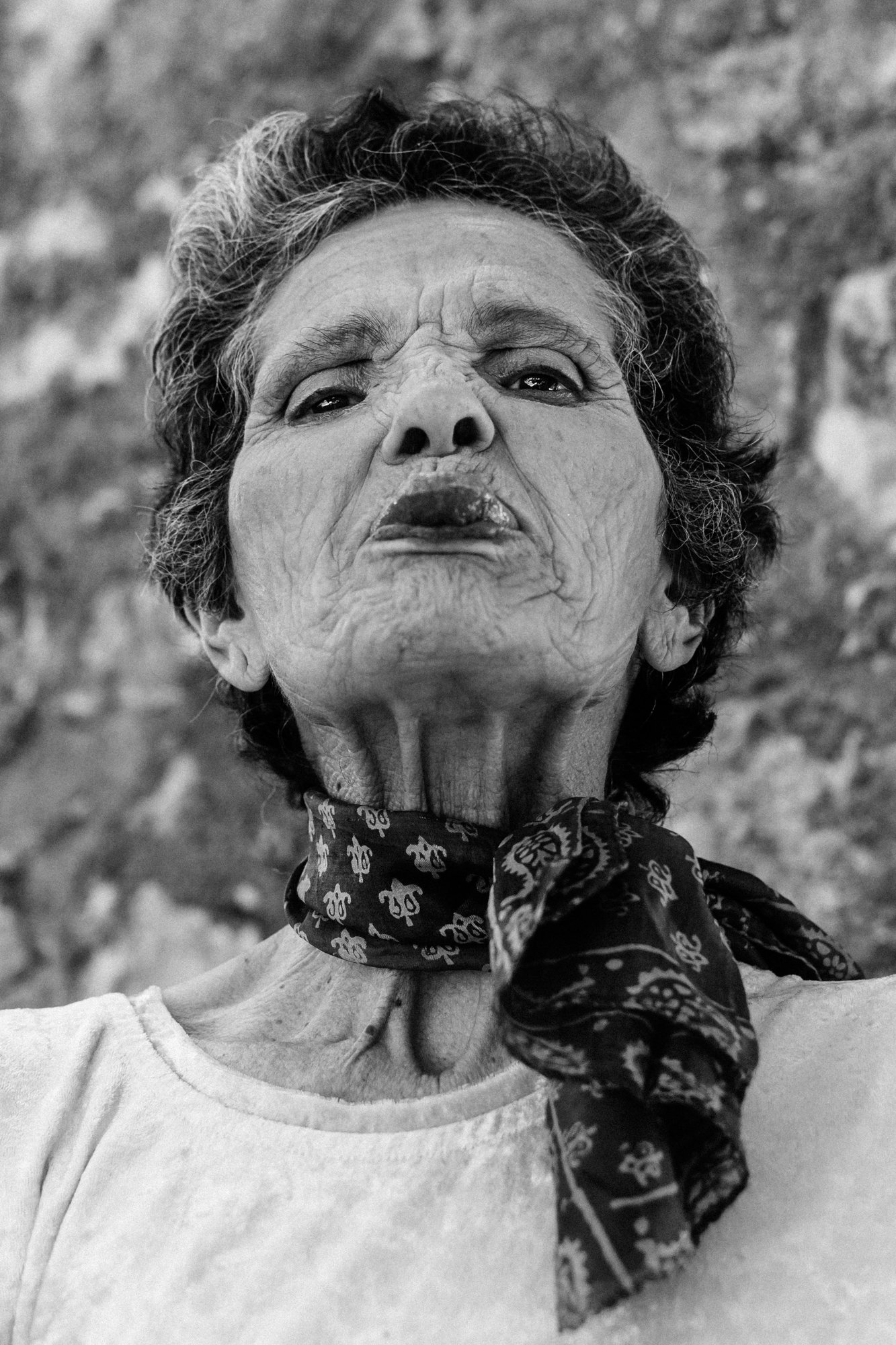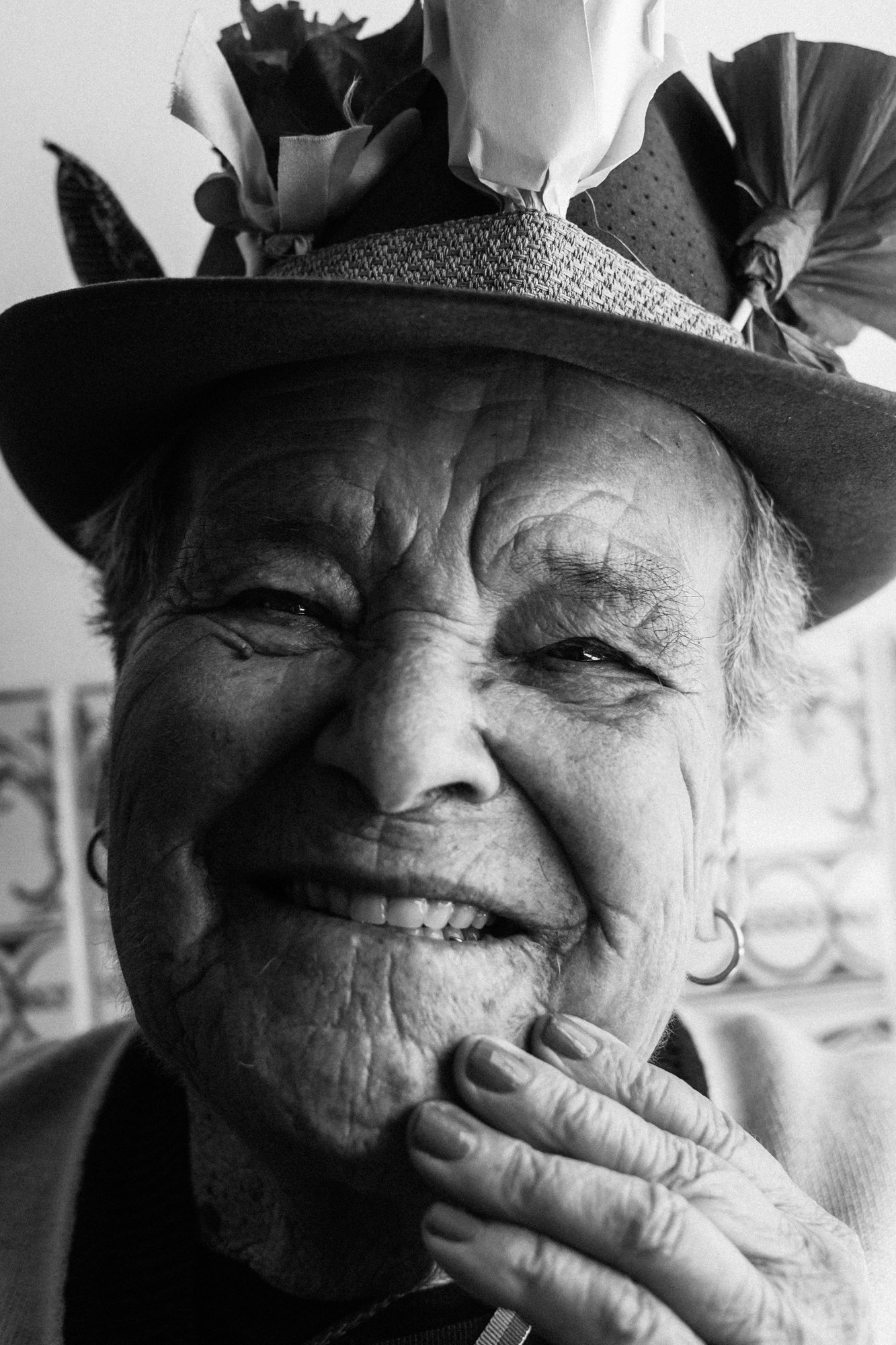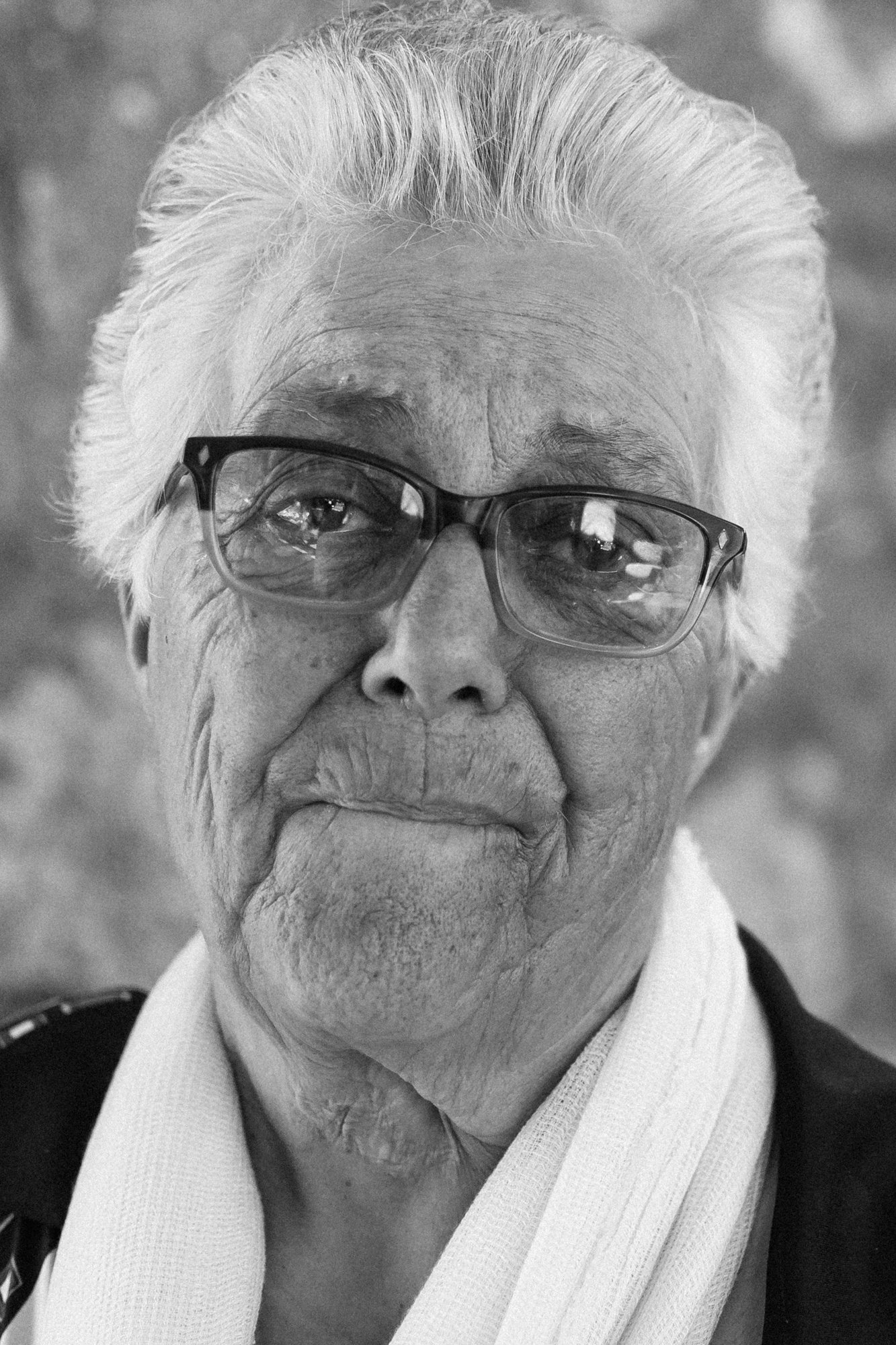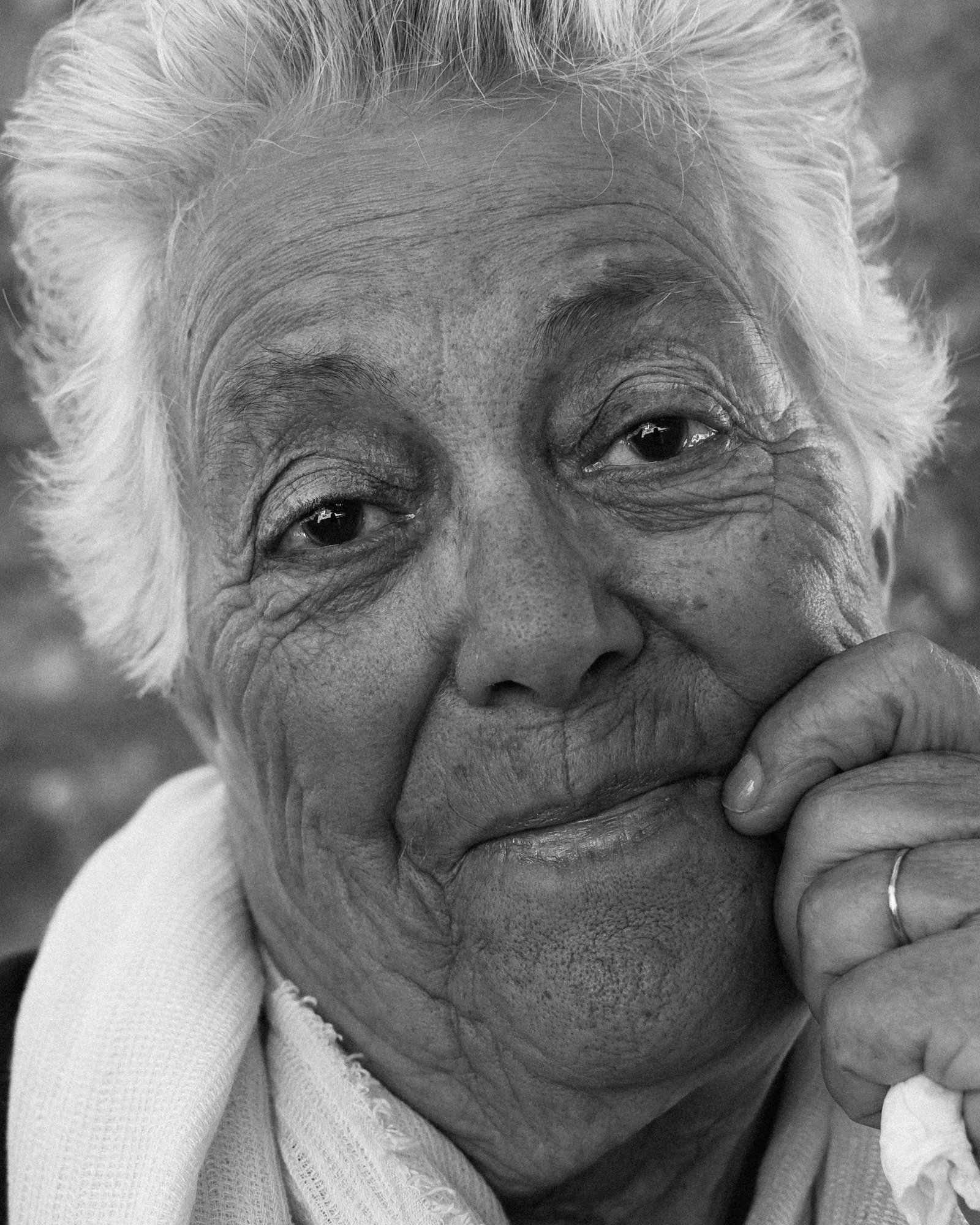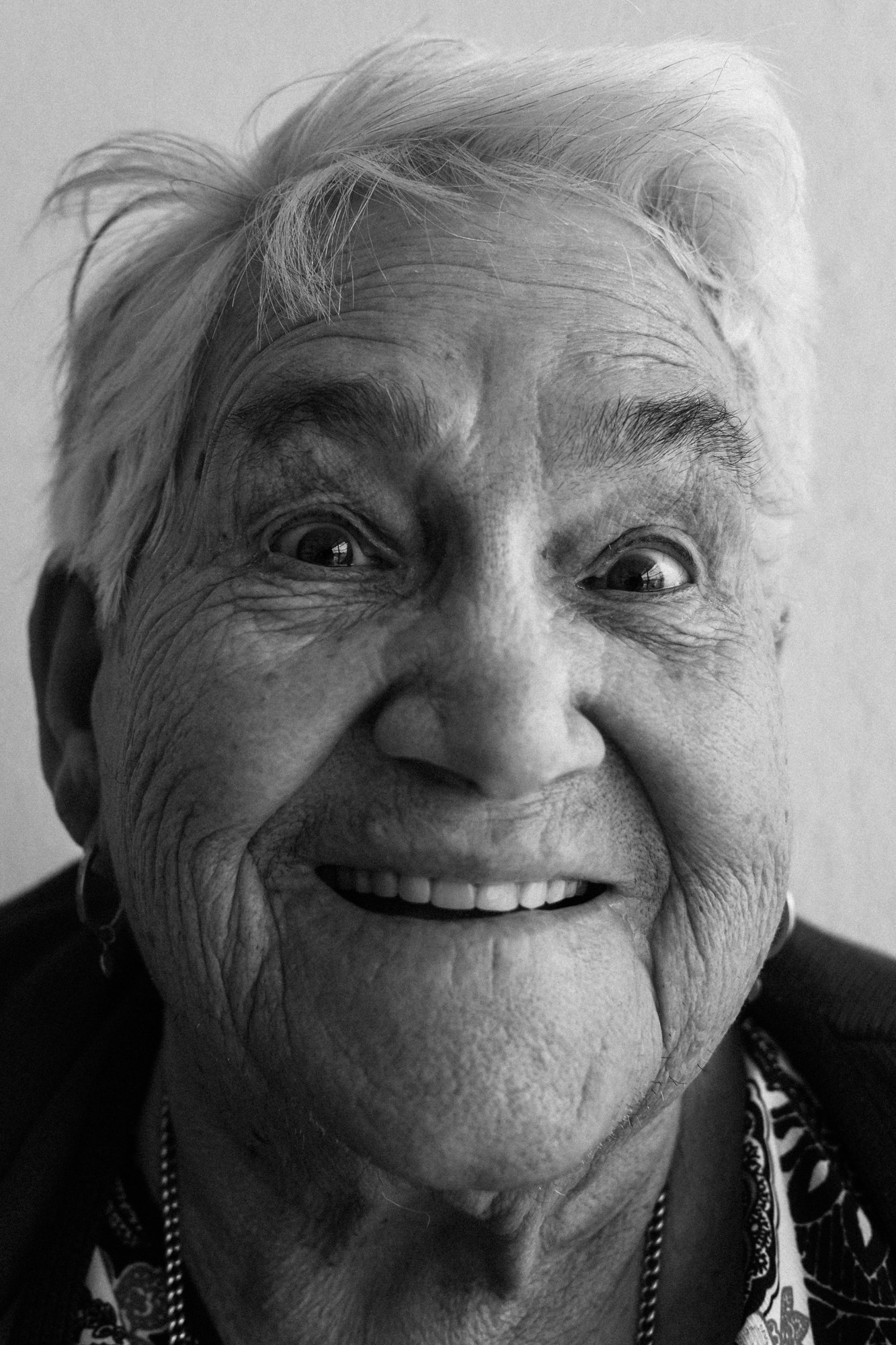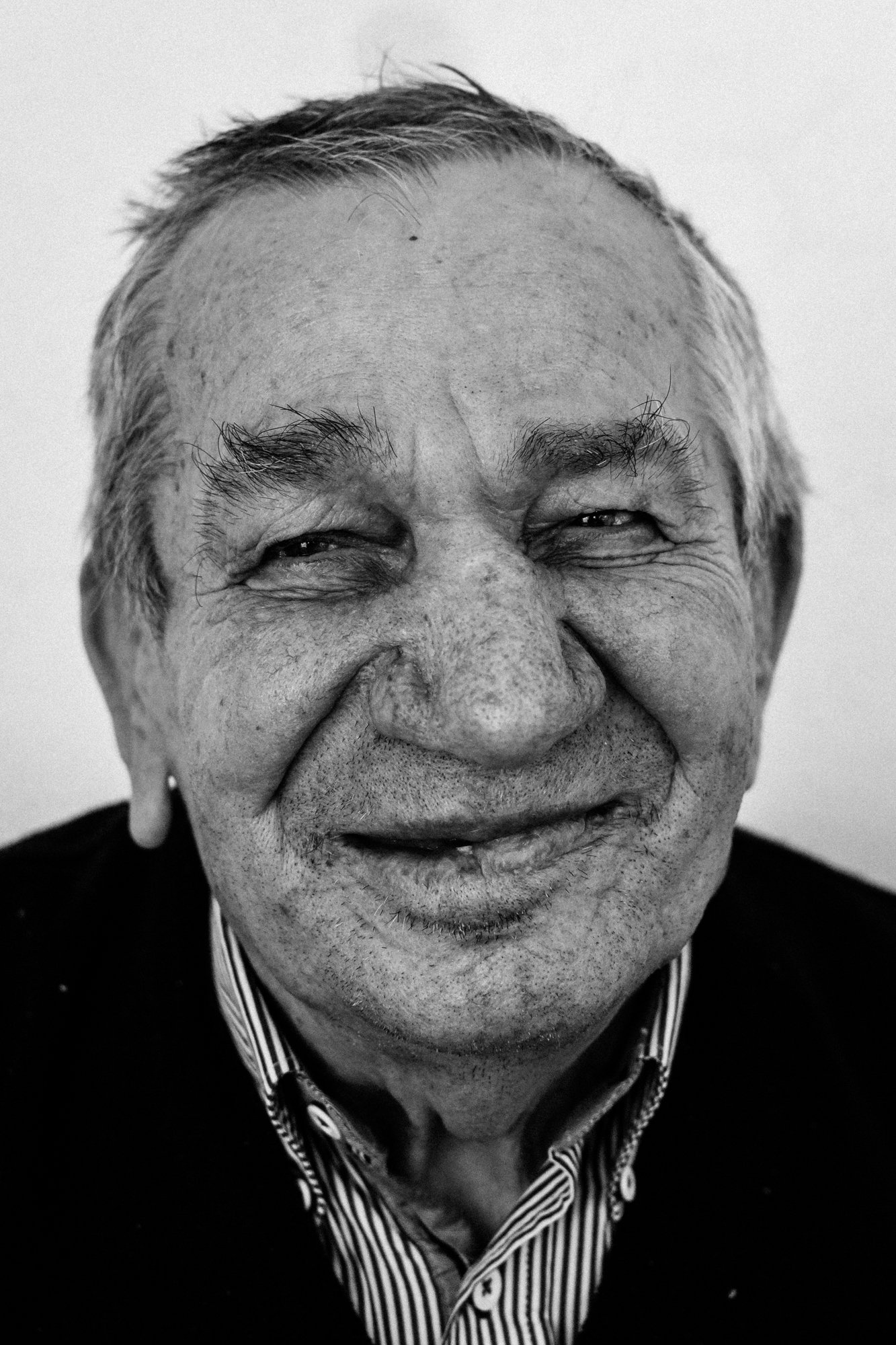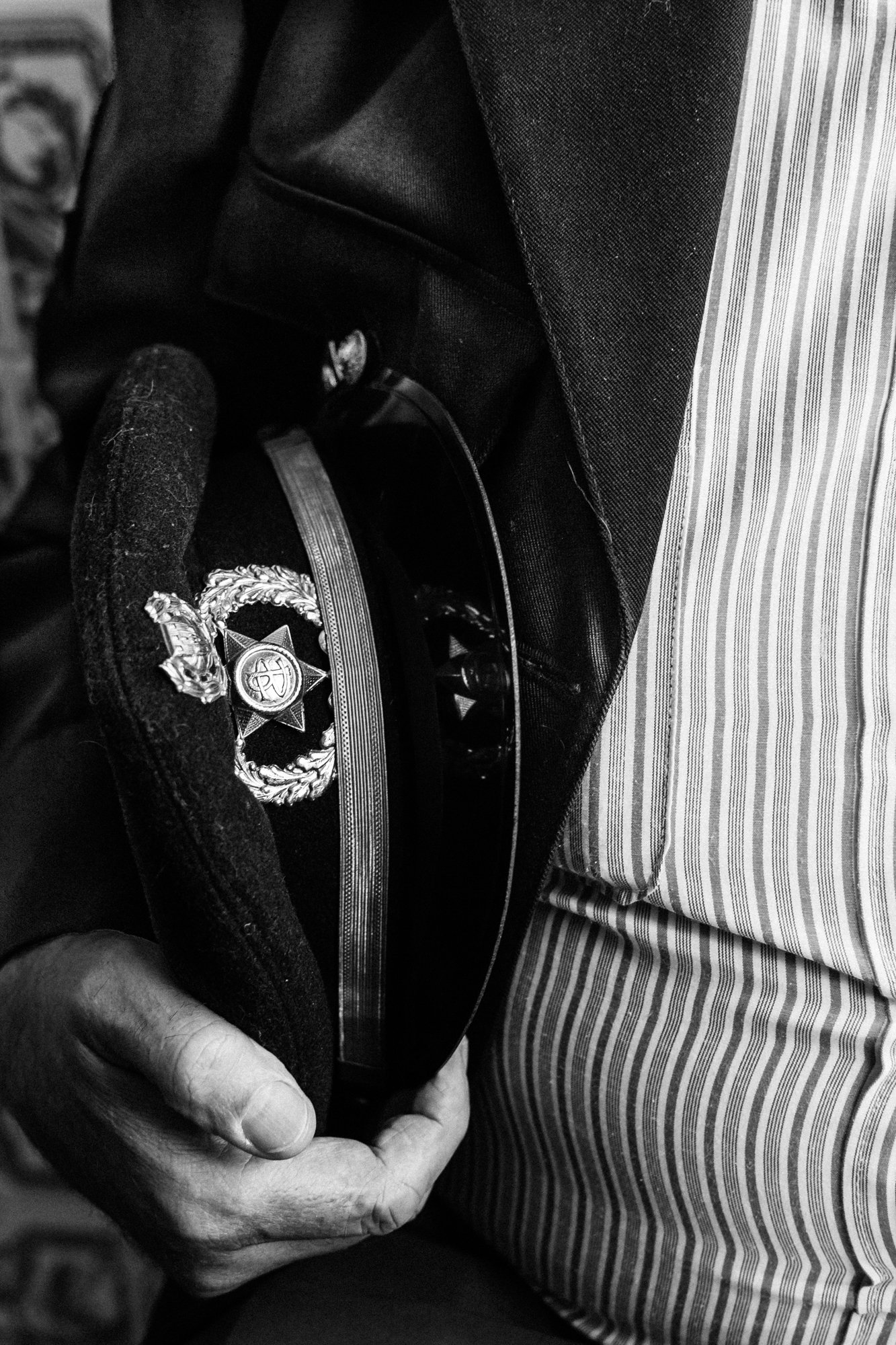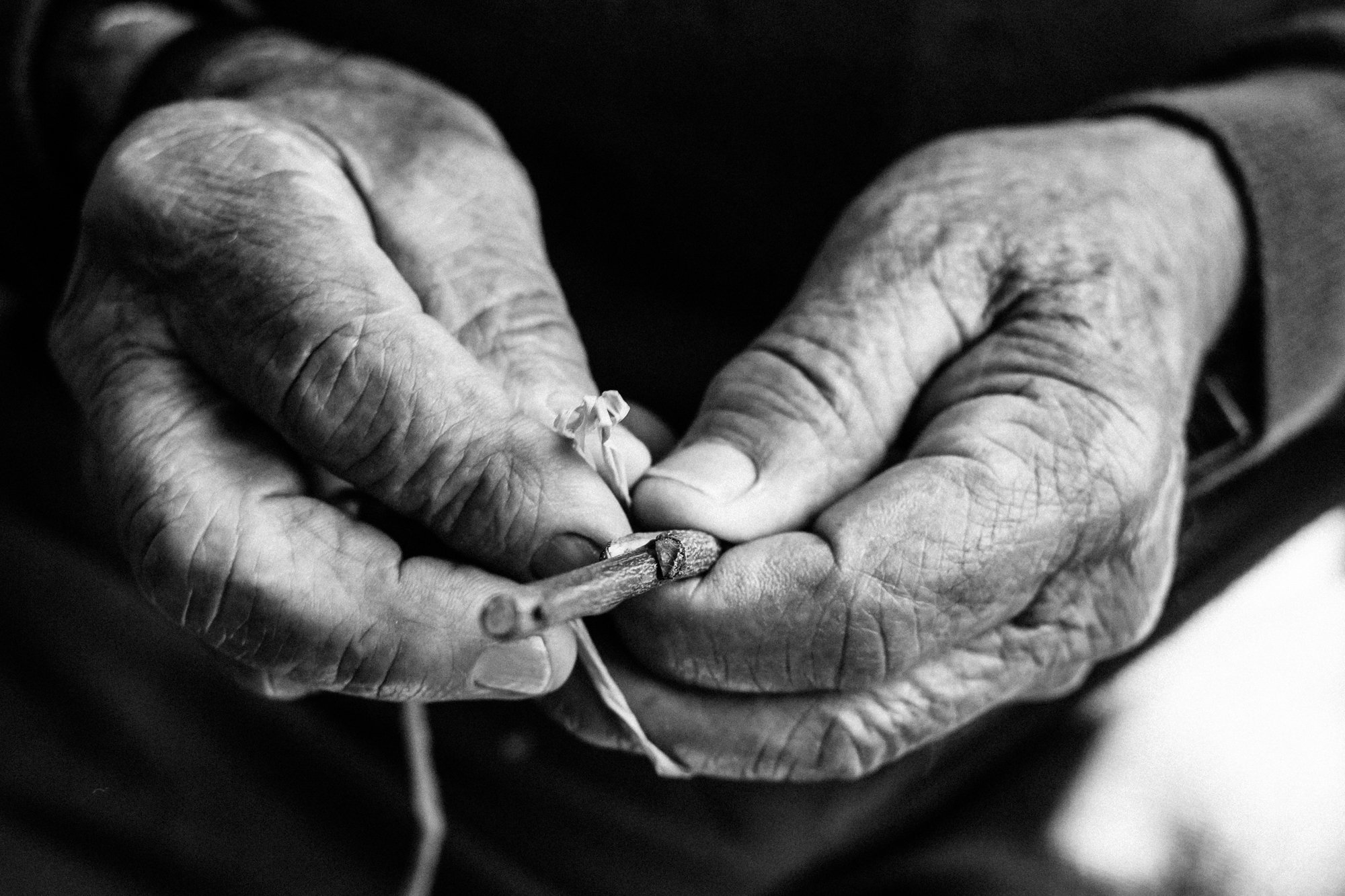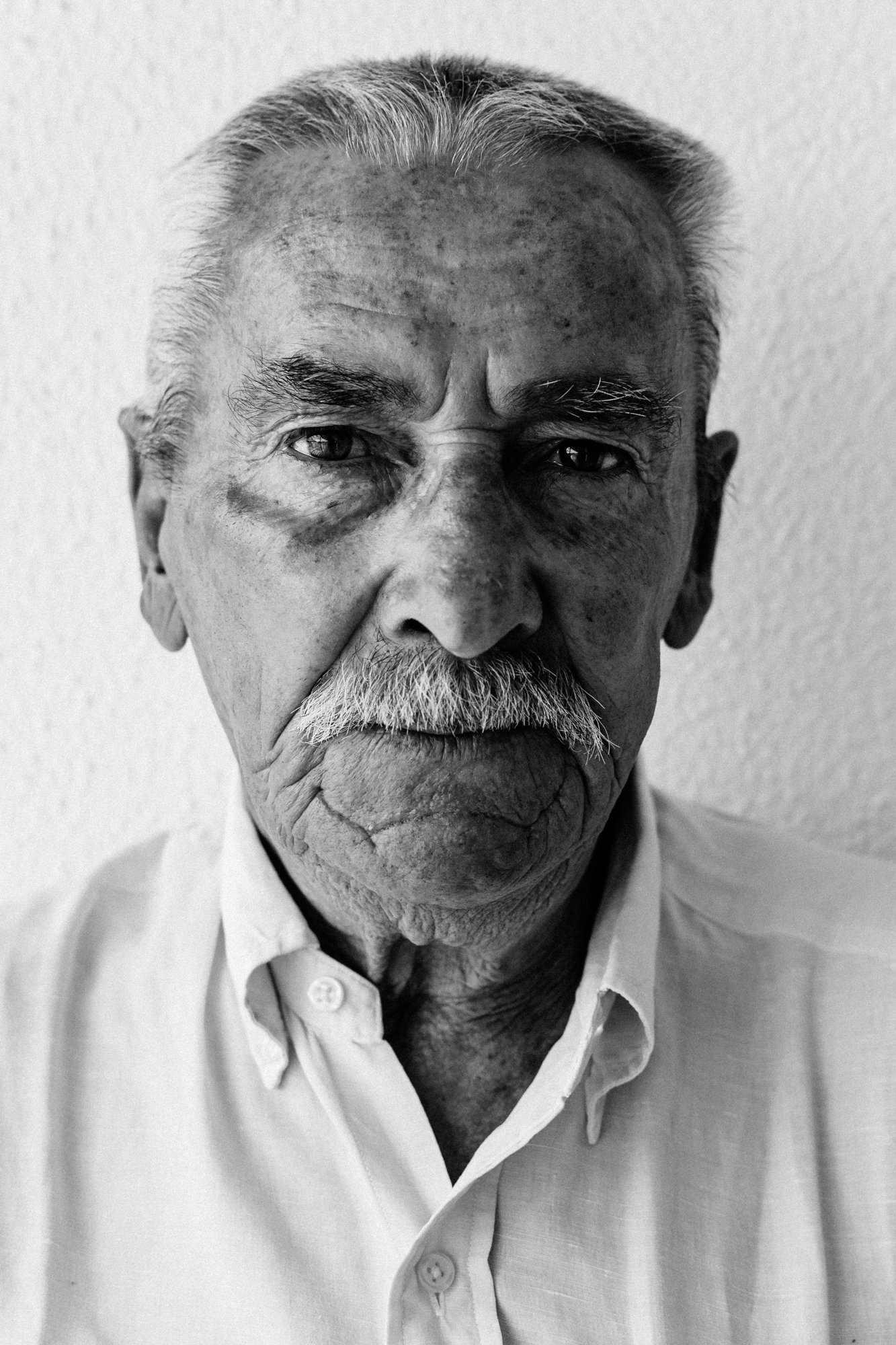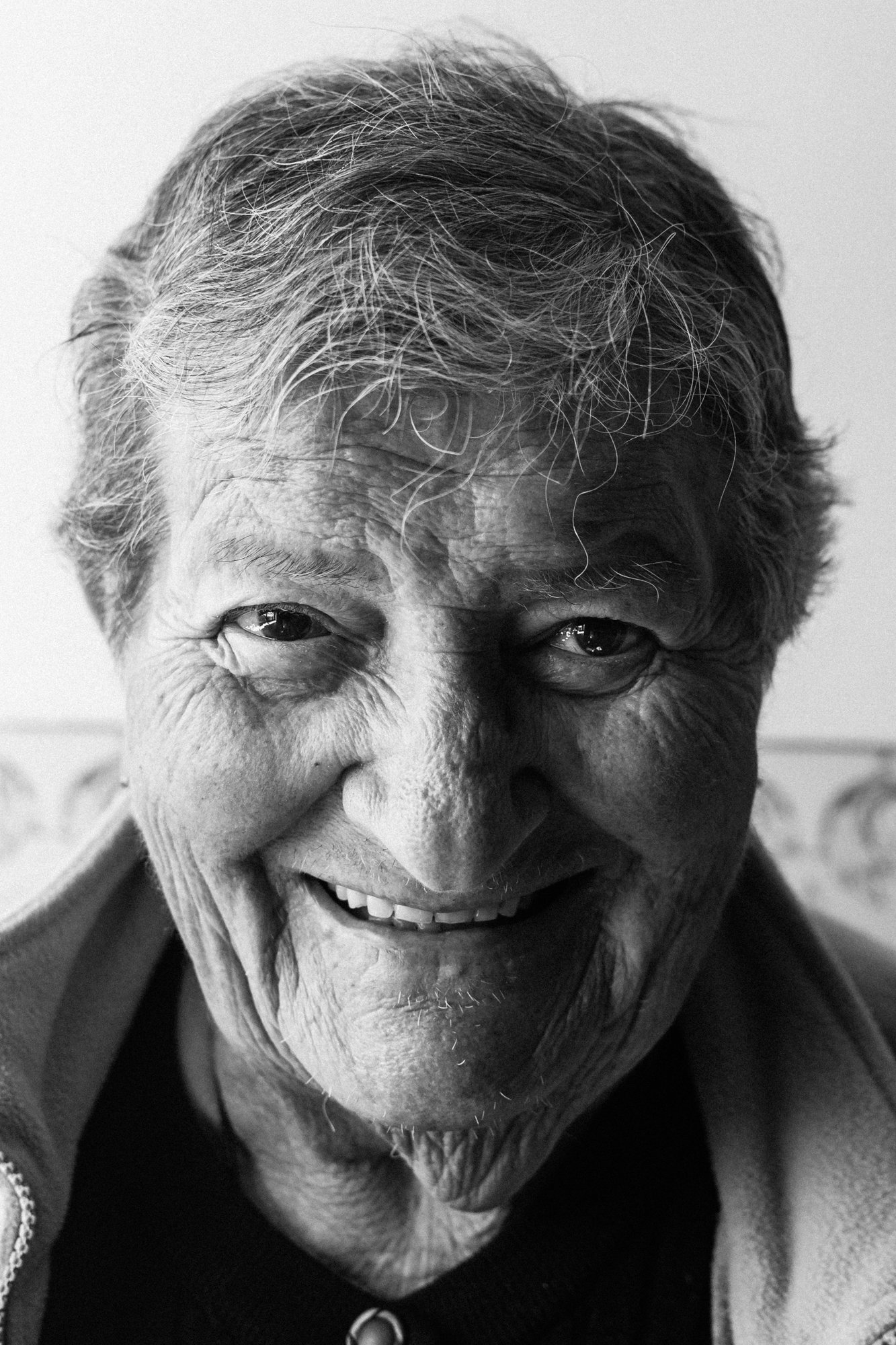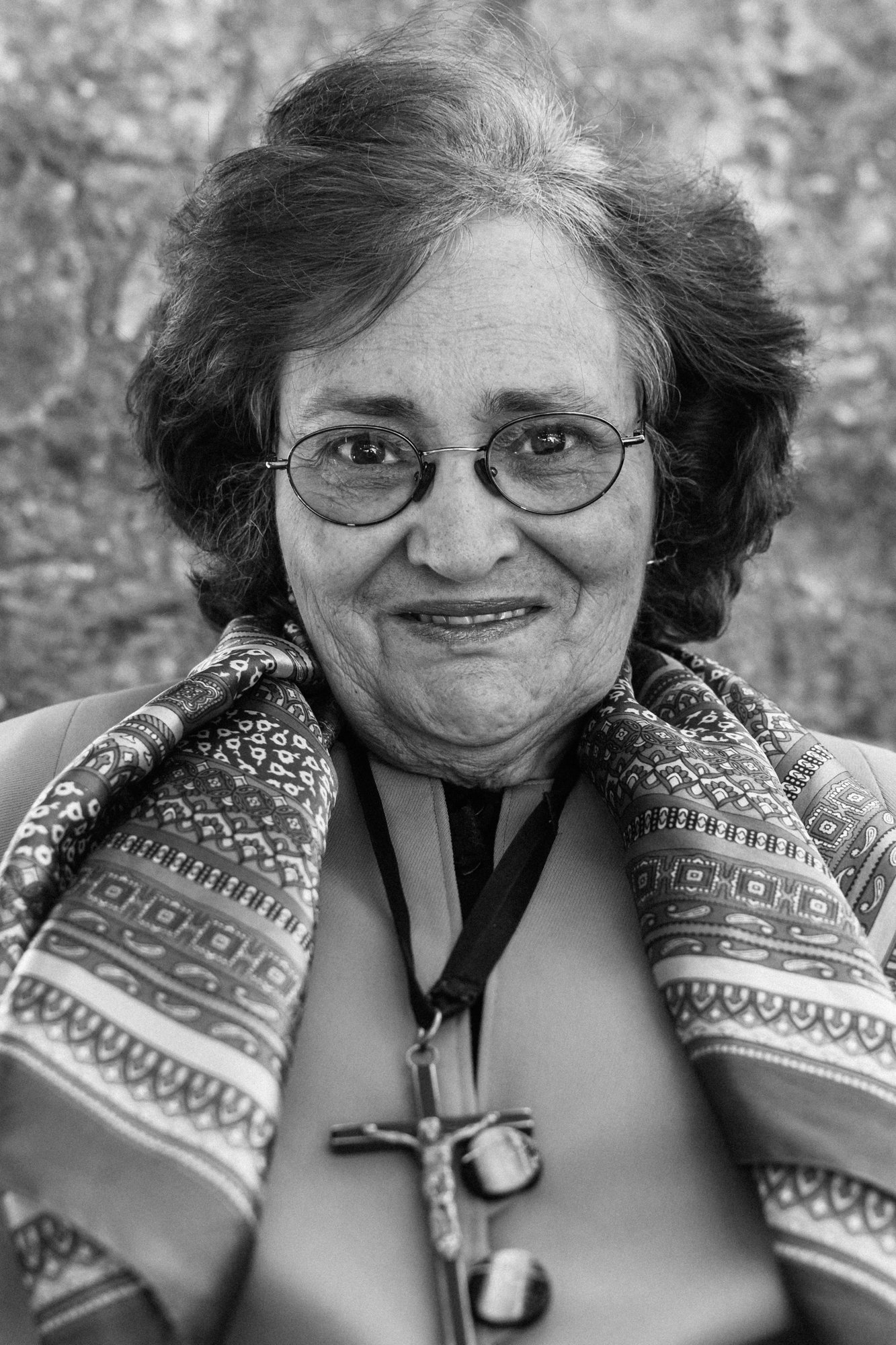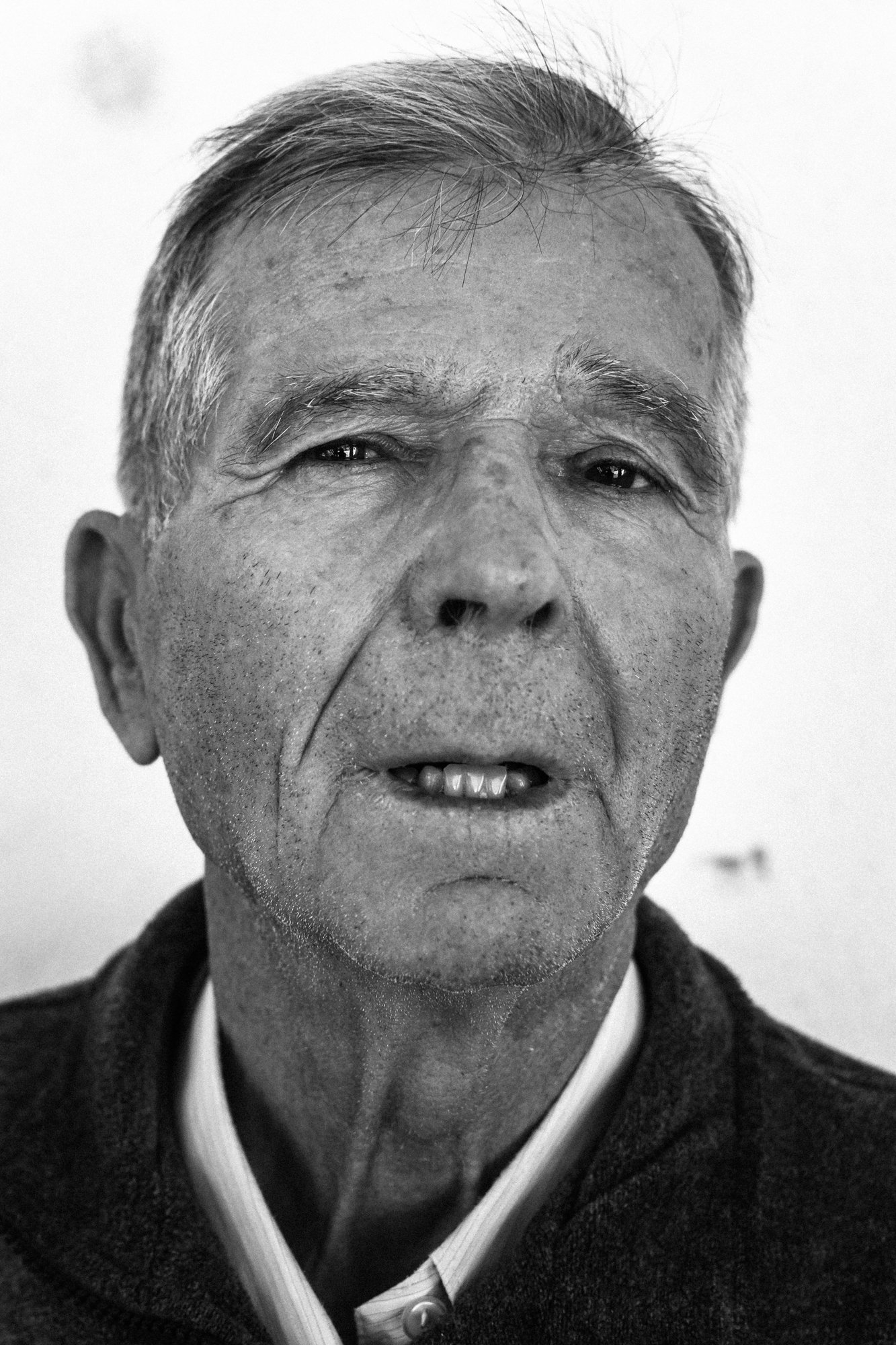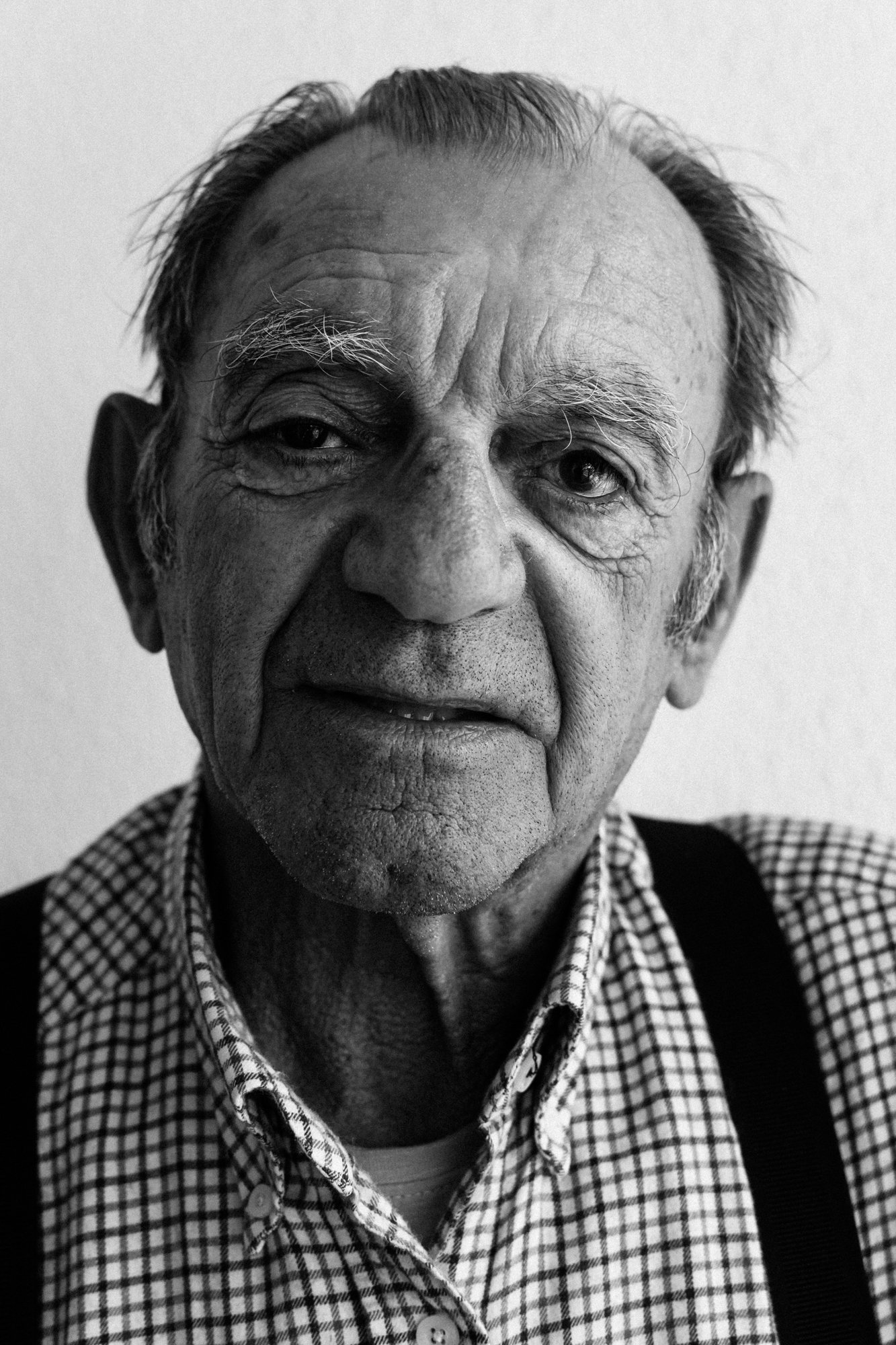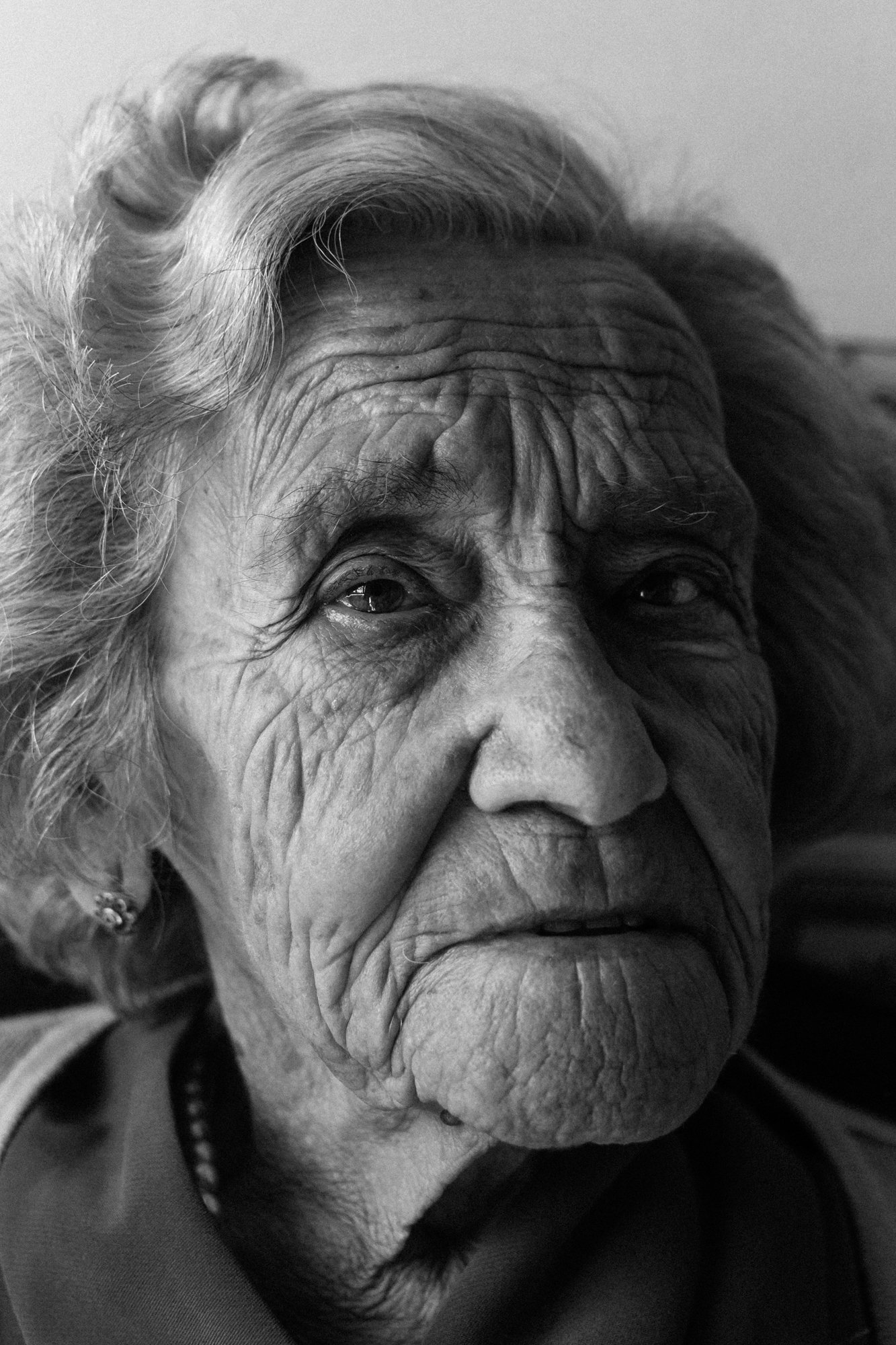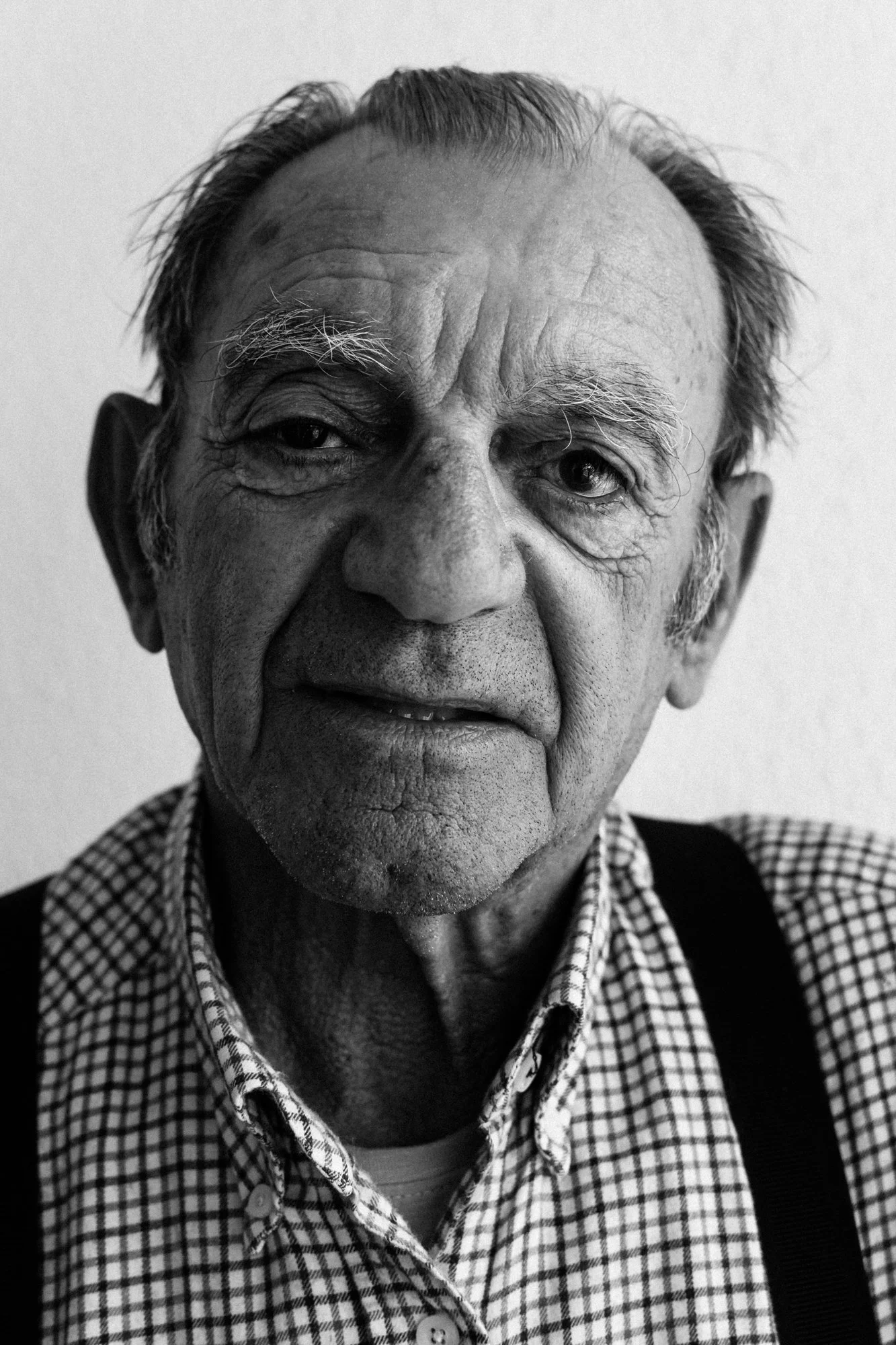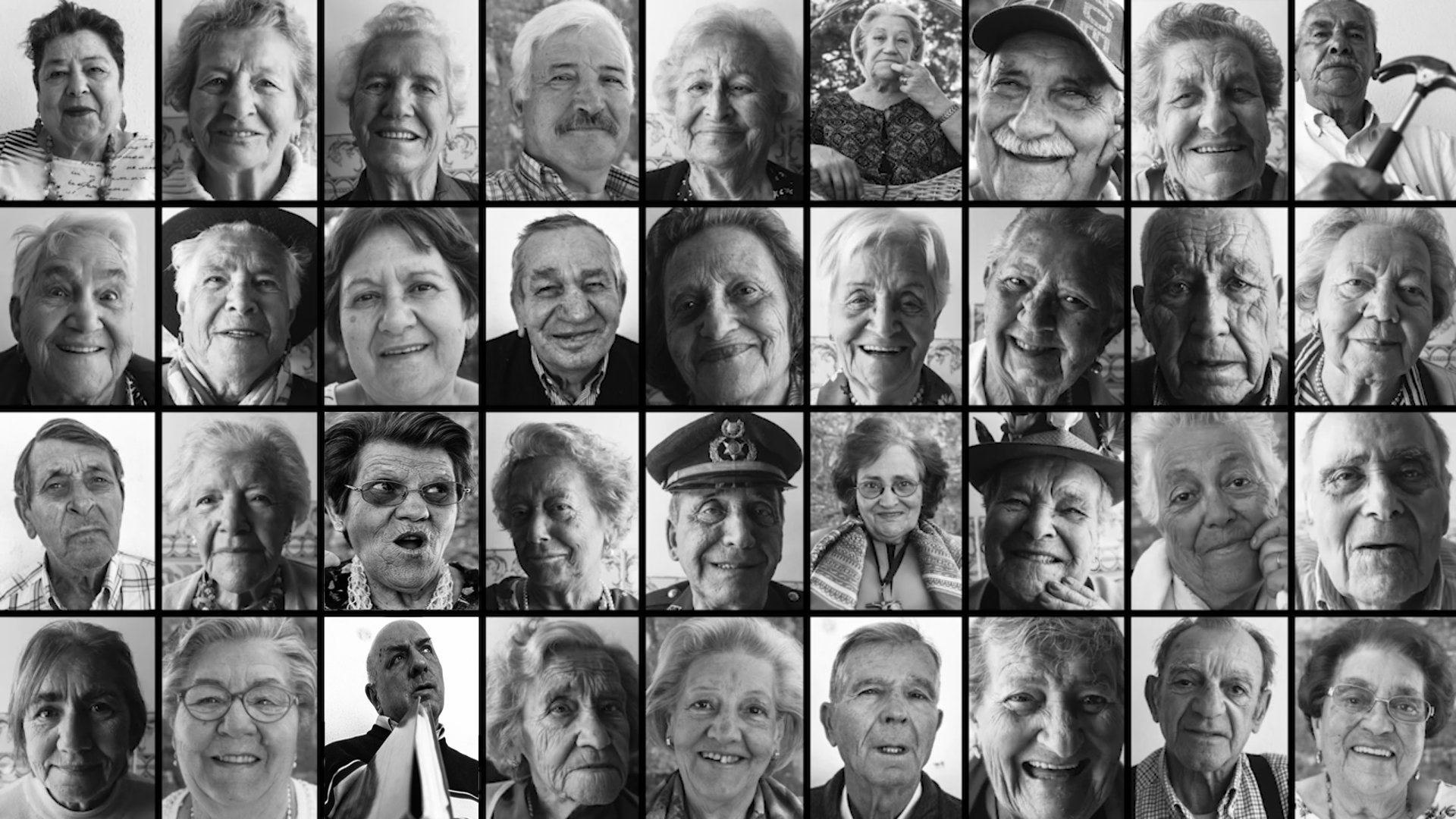
The Idea came from Ana Da Silva, my coordinating Professor.
The project "Rostos e Talentos da Nossa Terra" was made in Portugal with the help of several institutions including: EAPN (European Anti Poverty Network), Instituto Politecnico de Santarem, Centro Social Interparoquial de Santarém and Santa Casa da Misericórdia de Santarém.
I photographed 36 elderly people from different asylums and social centers during the summer in 2019. I tried to capture the essence of each one by taking close portraits of them with a sense of connection between their talents and what each one of them did in life.
Just want to share my Eternal Gratitude to everyone that has helped me with this project. I was a foreigner and you made me feel like I belonged there.
Thank you.
/Manuel Luís Gomes/
.
"Until I was 9, I worked in the gardens with my father. I worked in several shoe stores until I turned 21. Then I went to Angola with the army, and I really liked it. When I returned, I joined the police force and worked there for 30 years.
When I was 7 years old, I put three of my sisters in a car and lifted the brake. The car rolled down the street and crashed into the church. Everyone got out safely! Of course, I got a beating from my parents afterward.
Back then, there was hunger. Those who owned land lived well. Those who didn’t, lived poorly.
One Christmas, my father gave me a single shoe as a gift."
Maria José Fialho Bico
.
I’m from Abrantes. I was a babysitter for social security. I loved kids. I took care of an 8-year-old and a 9-year-old, one of whom had special needs. Whenever a sitter got sick, I looked after their child. I bathed them, fed them, cleaned them, and changed their diapers. I earned around 900 escudos per month.
There was a time I refused to hand a child over to his father:
“Look, have some patience. I'm not giving him to you because you're drunk, and if something happens, it’s my responsibility.”
The boy cried a lot, and that very day, his father had an accident and died.
I had a talent for acting. I did theater in Abrantes, near the School of Fátima. We had a group of singers who also performed theater and comedy. A few friends encouraged me to join.
Because of poverty, children would often come home starving and unwashed. I would take them to the bathtub and bathe them myself because they didn’t want to.
On Christmas, I made small houses, tiny boots, whatever came to mind. I also crafted cloth dolls.
/Alice Batista Hipólito/
.
"I'm from Benfica do Ribatejo. I left school at 10 and started working with my parents in agriculture.
At 22, already married, I began working in agriculture on my own. People didn’t really value my work. It wasn’t just 8 hours a day, it was from sunrise to sunset, every single day.
We weren’t well paid, but we were always singing."
/João Veiga/
.
"I worked in agriculture, in the fields, for 31 years. I was not paid well. I earned 45 escudos a day, later rising to 70. My life as a whole has improved, but nobody has ever given me anything for free in this life.
I have never received a Gift..."
Manuel Ferro
.
"I am 77 years old and was born in Portalegre. I was raised in an orphanage and left when I was ten.
I learned to be a tailor from a former student who later became a master.
In 1963, I joined the army in Guinea-Bissau. I spent two years there as a radiographer at Companhia 594, responsible for the army's radio station. Every hour, I had to stay awake to check if everything was functioning properly, receiving and sending messages.
After leaving the army, I worked several jobs as a tailor and later became a foreman. The pay was low… 70 escudos a day.
While overseas, I ate rice by hand with the natives, got along well with them, and built good relationships. Once, I saved many of my colleagues because their radio wasn’t working. They couldn't receive or send messages. I wasn’t supposed to intervene, but I chose to do it anyway to call for reinforcements. To this day, I am still waiting for recognition.
Now, what I love most is making people laugh."
/Virgínia Ferreira/
.
"I was born in Lisbon, at Hospital de S. José.
I moved to Vila Franca to get married. I never went to school. After marriage, I had six children. Luck was not on my side... the marriage was a misery. He did not work, and there was no work for married women. We had no electricity. A neighbor would give us a plate of soup with bits of bread and a handful of broad beans.
Years later, I worked on carving machines, making pedals, just like the Men. But I wasn’t paid like them. My wages were miserable."
/José Belchior/
.
"I learned the trade from several masters in Tremês and later in Santarém, with Rua João Afonso. I used to say I was a chair polisher because I also did furniture finishes and racks, something that few people do and I take Great Pleasure in it.
Nowadays, people go to AKI, IKEA, and buy things ready-made. I thought this Craft would disappear, but today I am convinced it won’t, there will always be a need for people who truly know the Trade.
When I started working, it was for Free. Then, on weekends, I began receiving small tips, which I happily took home. My mother would say, ‘Look, Son, now you can Pay for Bread!’
At 16, I left that joinery, earning 15 escudos a day. When I moved to Santarém, my wage doubled to 30 a day."
/Maria Antonieta Graça Pires/
.
"My Talent is knitting and crocheting. I often get calluses between my fingers from doing it so much. Everything I know, I taught myself, no one ever showed me how.
I also learnt to do machine embroidery in Lisbon. I think there are still many women today who know how to knit and crochet, but I don’t know any men who do."
Manuel Francisco Caetano
.
"I was born in Angola and fled on April 25th. I worked as a heavy vehicle driver and in an iron warehouse, unloading construction materials and cargo. But my true Talent was caring for cattle and working the land.
I had three daughters. All of them passed away at a young age. The first died within 24 hours. Another at 11 years old. The third at 23, leaving behind two grandchildren of just 10 months old… who my late wife and I raised on our own.
Today, they are no longer the little girls I once hoped they'd become. They didn’t want to study, they didn’t want to follow their own paths. But one of them already gave me a great-grandchild.
I’ve been through a lot of pain. My father died when I was 11. As a child, I barely received gifts. The only one I remember was a small cardboard cart."
Maria Fernanda da Piedade Silva
.
"I'm from Portela das Padeiras, but I lived more than 20 years in Paris, cleaning and cooking. My mother, poor thing, had six children. My father was all about wine and tobacco, and he made me start working by the day, still very young.
In France, they used to call me “Ma petite Fernanda.” When I started cleaning, at first, I didn’t know how to say anything. I learned to speak French with my lady employers.
Once, I made a Portuguese stew. They had never tasted it before and they couldn’t stop praising the food. After that, they kept asking me to make it again. They were amazed!
“Ma petite Fernanda, qu’est-ce que c’est bon!”
I Earned much more than I would have in Portugal. My husband worked building and installing elevators. Oh, in Portugal it was so bad! There was so much poverty… The Portuguese employers wanted to pay me, but they didn’t have the money… eventually they managed, and they never let me go."
Luís Francisco da Silva
.
"I’m 84 years old. I was a postman, always respected confidentiality and the rules around delivering mail. I walked a lot from street to street, on foot and by bicycle, and I never lost any letters.
I’m Catholic and live in Vale de Santarém. I’m a widower and have four children, three boys and one girl. I worked very hard with my wife to raise and help our children grow up, but today I know I can count on all of them!
From my profession, I kept the love for reading, the knowledge of the streets and of people, and for letters.
Whenever I go on a trip, like to the Holiday Camp of the Mercy Day Center of Santarém, where I am now, I always make a point of finding out where the post office is so I can send a postcard or letter to the family. Even if it arrives after I return, it’s a gesture I enjoy making!"
/Natividade Henriques Cunha Dias/
.
"I’m from Verdelho. I worked as a seamstress in a tailor shop in Póvoa de Santarém. I used to sew 10 pairs of pants a day, all by machine. I learned the craft there from the Master. There were more women than men working in the shop.
I believe tailors no longer really exist. And if they do, there must be very few. I was well paid at the time. I earned about 100 escudos a month. Back then, that was enough to cover a lot.
In those days, there was so much poverty. People didn’t have money and often went hungry or suffered with health problems…"
/Maria Rita Rodrigues/
.
"I was a Dressmaker. I did knitting, Castelo Branco embroidery, bedspreads…
For a few years, I taught girls how to embroider.
Compared to the old days, today there isn’t as much poverty. People don’t come asking for a little plate of food like they used to ask my mother, in Tremês, back in 1939. Very few people received gifts, and when they did, it was always something useful, like a pair of socks for Christmas.
There were people who came from Africa with children who brought toys, tricycles, and things we didn’t have here at that time."
